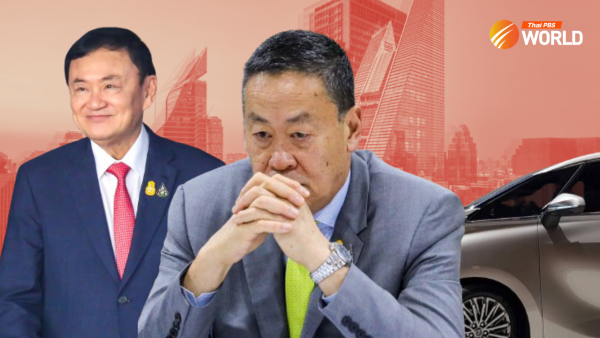Palang Pracharath “coup” raises spectre of “military” rule for Thailand

Deputy Prime Minister General Prawit Wongsuwan looks set to become leader of the ruling Palang Pracharath Party, which will hold a general assembly to elect a new executive committee by July 15.
The line-up change is being made after 18 of the 34 party executives quit their posts on Monday, in a move seen as an attempt by party factions to oust Palang Pracharath leader Uttama Savanayana and secretary-general Sontirat Sontijirawong and press for a Cabinet reshuffle.
Party regulations dictate that if more than half of its executives resign, the entire executive committee is dissolved. The party then has 45 days to hold a general assembly to elect a new committee.
Prawit, who is Palang Pracharath’s chief strategist, appears to be the only candidate for the party’s helm, following two months of growing pressure from members, who are dissatisfied with Uttama’s leadership and want him replaced by the general.
According to critics, the way is being paved for the 74-year-old retired general to lead the core coalition party. However, they said that with Prawit at the helm, the Prayut government’s stability would be boosted but Thailand would fall under de facto absolute military rule.
Gen Prawit has strong connections with business tycoons and with politicians in various parties, including coalition partners like Bhumjaithai Party and the Democrats and even the core opposition Pheu Thai Party, said Titipol Phakdeewanich, political science dean at Ubon Ratchathani University.
With those links and his strong influence in the military, having Gen Prawit as party leader would help the Palang Pracharath-led government and Prime Minister Prayut Chan-o-cha cement their power for the long term, Titipol added.
Moreover, he thinks Prawit would want to take control of the party to ensure the military maintained its power in Thai politics.
“If Prawit wins the post, the change of leadership will be a ‘coup’ within the party itself as it will pave the way for military control in government,” said Titipol, who singles out Prawit as Thailand’s most influential retired general.
“But sadly, [military control] would neither be good for Thailand in the long term nor be healthy for Thai democracy,” the analyst said.
Yuthaporn Issarachai, a political scientist from the Sukhothai Thammathirat Open University, agreed Prawit would likely become the new party leader.
“Palang Pracharath is seen as the party of the NCPO [National Council for Peace and Order], so it’s time for Prawit, who is the real party leader of the party [to take the helm],” said Yuthaporn.
With his seniority, political charisma and influence, the general will be able to make party politicians toe the line, thereby managing internal rifts, the academic added.
Prawit faces public opposition
Known as “Big Brother”, Prawit commands widespread respect in the armed forces. With more than a decade in politics and strong political connections, the general is far better versed than Uttama in dealing – and bargaining – with party members, observers said.
While Prawit has received strong support from his party members, public sentiment, including from Prayut’s supporters, is against Prawit’s nomination. Social media users warned they would be disgusted with Prayut if he gave the nod for his “Big Brother” to lead the party.
They complained that the ruling party was more concerned with Cabinet seats and personal interests, rather than the national interest at a time when the Kingdom was fighting the deadly coronavirus. Some even feared a secret deal could be made between the new party leader and fugitive ex-premier Thaksin Shinawatra.
However, General Prawit himself has so far refused to either confirm or deny whether he will become ruling party leader, saying it depends on party members.
Prawit has also denied he had a hand in the mass resignation of executive members. And when asked by reporters if he would accept the party’s leadership should it be offered, the general just smiled and remained silent.
Despite the fact that Prawit, as party leader, would turn the PM’s “brother-in-arms” into a new lightning rod for government critics, many observers believed Prayut would not stand in the way of his appointment. Prawit is known as a weak link in Prayut’s administration, due mainly to the scandal over his multimillion-baht wristwatch collection, which continues to haunt him even after he was cleared by the National Anti-Corruption Commission.
Will Palang Pracharath break up?
The move to change the party executive committee and Cabinet line-up has been opposed by Deputy Prime Minister Somkid Jatusripitak and Uttama’s “Four Boys” faction of key economic ministers, prompting speculation that Palang Pracharath will now split up.
However, analysts believe Prayut and Prawit should be able to manage the power battle among party factions.
The “Four Boys” group comprises soon-to-be removed party leader Uttama, who is also finance minister; Energy Minister Sontirat, outgoing deputy leader Suvit Maesincee, who is also minister of Higher Education, Science, Research and Innovation; and executive member Kobsak Pootrakool.
According to Yuthaporn, tensions and power struggles will linger within the ruling party – but it would not break up.
The academic reckoned that Somkid and his faction will not quit the party, with Prayut either permitting them to stay in their Cabinet posts or else allocating some “A” grade economic ministers to the faction in return for them leaving their posts as executive members.
Though it was reported that the “Four Boys” faction and its affiliated MPs would defect and form a new party, Yuthaporn cited a law which stipulates that MPs who switch parties can only keep their MP status if their existing party is dissolved or plans to disband. Hence, if MPs under the “Four Boys” faction leave the party without that “safety net”, they will risk losing their MP status.
Prayut is expected to reshuffle his Cabinet once the government marks its first year in power, in July, although the premier made it clear that the change of party executive board had nothing to do with him and he had yet to consider the reshuffle.
“I don’t think government MPs will commit suicide [by leaving the ruling camp],” remarked Titipol. “They will try to survive as long as they can. No one wants to contest an election soon. So, we will see [a period of] bargaining over interests between the party and its members.”
By ThaiPBS World’s Political Desk






